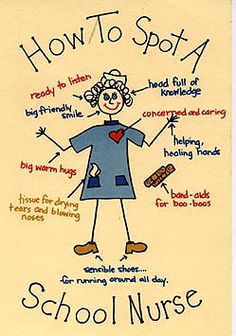Health Services
Visit here for information regarding services provided to our students as well as helpful tips to keep yourself and your child healthy.
School Nursing is a specialized practice of professional nursing that advances the well being, academic success and lifelong achievement of students. To that end, school nurses facilitate positive student responses to normal development; promote health and safety; intervene with actual and potential health problems; provide case management services; and actively collaborate with others to build student and family capacity for adaptation, self management, self advocacy and learning.(National Association of School Nurses, June-1999)
Meriwether County School Nurses
Dear Parents,
Meriwether County Health Department and School Health Services are proud to be a part of the team that supports student success in our county. As your school nurse works with you this year, we need your assistance and cooperation in preparing for the possibility that your student might need to take a medication, become ill, become exposed to a disease, or have an injury during school hours. Current contact information is important for the schools to have on file. Flu season will be beginning soon and there are already reports of strep throat and gastrointestinal illnesses in many communities.
The main reasons for keeping your student home are that he or she is too sick to participate comfortably at school or might spread a contagious disease to other students. If your student has been diagnosed with a contagious disease, please contact the clinic so that other students’ parents and school staff may be alerted of the symptoms.
Primary reasons to keep your student home from school include the following conditions listed below.
Students should not be in school if they are experiencing the following:
• Fever greater than 100° F
• Diarrhea and vomiting
• Persistent coughing
• Sore throat with fever or severe sore throat without fever
• Pinkeye
• Persistent ear ache
• Chickenpox
• Impetigo
• Scabies
• Head lice
• If complaints of stomach ache especially with movement or eating
You should call your doctor if your child is experiencing:
• Fever greater than 100.4 F
• Stiff neck
• Purplish rash
• Vomiting or diarrhea that does not improve
Your student may not return to school until they have been fever-free (<100ْ F) and symptom free for ONE FULL school day (i.e. if your child goes home sick at 11:00 am on Monday, your child cannot return to school until Wednesday morning). When there is doubt in your mind about sending your student to school, consult your doctor. Your school nurse or principal may ask for a “Release to Return to School” from your doctor.
Please consider the health of your child and others!
Health Services Personnel
Meriwether County Schools

Rashes
Please help us keep our children healthy in school!
SKIN RASHES
Many illnesses can cause skin rashes. Measles, chicken pox, high fevers, strept bacteria, fungal infections (ringworm), viruses, staph infections, juvenile rheumatoid arthritis and shingles are a few illnesses that can cause rashes.
Allergic reactions such as exposure to poison ivy, bug bites, some soaps or detergents, chemicals in elastic or latex products or even extreme temperature changes can cause a rash. It is not uncommon to see rashes caused by skin mites in school children.
Many rashes will disappear after a couple of days, but you should examine your child’s skin daily. It’s very easy to misdiagnose rashes as they can be caused by so many things, even food allergies, so if your child still has the rash after a couple of days it’s a good idea to visit the doctor. If the rash is causing your child to scratch excessively there is always the added danger of infection.
It is important to examine your child’s skin daily to detect any signs that he/she may be developing a rash. If you do notice a rash on your child, it is important to take immediate action to prevent further development. Keep your child’s skin clean. During the cold weather when the humidity is low, it is important to keep your skin moisturized. Applying lotion daily will prevent the skin from drying out and cracking.
Many rashes will disappear after a couple of days, but you should examine your child’s skin daily. It’s very easy to misdiagnose rashes as they can be caused by so many things, even food allergies, so if your child still has the rash after a couple of days it’s a good idea to visit the doctor. If the rash is causing your child to scratch excessively there is always the added danger of infection.
WASH HANDS FREQUENTLY AND THOROUGHLY. Always keep hands clean. Hands are the first source to spread skin infections. When skin itches, we naturally scratch; which not only irritates the skin further, but also may introduce bacteria into an already sensitive area or spreads bacteria from one part of the body to another part.
•Wet your hands with running water.
•Apply soap.
•Lather well.
•Rub your hands vigorously for at least 20 seconds (Happy Birthday song twice). Remember to scrub all surfaces, including the backs of your hands, wrists, between your fingers and under your fingernails.
•Rinse well.
•Dry your hands.